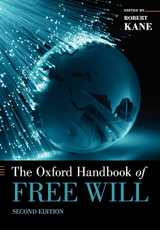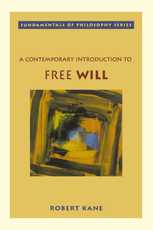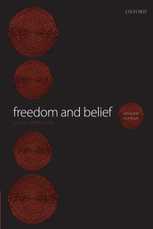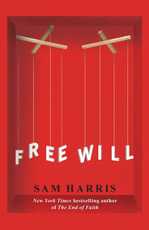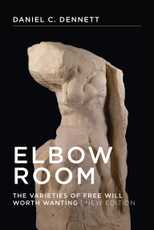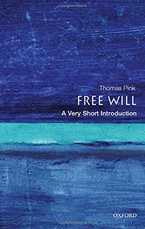

Free Will The Best 7 Books to Read
Are we free to do as we please? Or is the freedom of choice we feel in our day-to-day lives a mere illusion? Is every action and circumstance predetermined? Or can our wills transcend the past to actively shape the future? Does determinism, the theory that everything is determined by pre-existing causes, render our conceptions of free will and individual responsibility redundant? Or are such conceptions compatible with a deterministic world?
These types of questions form the basis of the philosophical quandary of free will. And the stakes are high: if it turns out we have no freedom in how we act, could we really blame people for bad behavior? Could we hold criminals to account, if they had no option but to act criminally? Would systems of ethics and morality have any justification at all?
While there's increasing clamor from voices in neuroscience that free will is an illusion, rescuing our conception of free will from the onslaught of a deterministic universe has been a favored pastime of many a thinker throughout the history of philosophy. (Consider: do neurons push thoughts around? Or do thoughts push neurons around?) Indeed, a favorite answer to the free will debate for many philosophers, for instance, is compatibilism, which suggests determinism and free will are in fact compatible...
In one concise email each Sunday, I break down a famous idea from philosophy. You get the distillation straight to your inbox:
💭 One short philosophical email each Sunday. Unsubscribe any time.
This reading list is designed to give you a well-rounded view of all the contemporary problems, theories, and debates about free will. After consuming it, you’ll be much clearer about what free will refers to, as well as the extent to which we can be said to exercise it.
1. Free Will: A Very Short Introduction, by Thomas Pink
Published in 2004, British philosopher Thomas Pink’s Free Will: A Very Short Introduction is a fantastic starting place for anyone curious about the free will debate in philosophy.
Pink lays out the core arguments in highly readable style, with one important note being that Pink himself is sympathetic to a position not held by the majority of philosophers, which may unsettle some readers.
Coming in at an accessible 132 pages, this is a nice entry point to free will, outlining the history and major discussion points of the debate.
2. The Oxford Handbook of Free Will, by Robert Kane
If you’re after a one-stop shop for all things free will, look no further than The Oxford Handbook of Free Will, edited by American philosopher Robert Kane and published in 2011.
Consisting of twenty-eight essays by prominent international scholars discussing free will’s relation to subjects across physics, neuroscience, cognitive science, psychology, and empirical philosophy, The Oxford Handbook of Free Will features the best short-form writings on free will from the past forty years, paying special attention to the latest research from the twenty-first century.
At 664 pages, this collection is substantial — but you won’t need another.
3. A Contemporary Introduction to Free Will, by Robert Kane
If you’d prefer a more in-depth, guided tour through free will's nefarious subject matter, Kane’s 2005 A Contemporary Introduction to Free Will is a brilliant choice.
Accessible to those with no background in the subject, Kane’s book offers a concise introduction to the history of the problem of free will, before diving into contemporary debates between compatibilists, incompatibilists, and libertarian theories.
The text is packed full of compelling examples and challenging thought experiments, and serves as an ideal introduction for anyone interested in free will.
4. Four Views on Free Will, by Fischer, Kane, Pereboom & Vargas
In the fascinating 2007 Four Views on Free Will, four well-known philosophers — John Fischer, Robert Kane, Derk Pereboom, and Manuel Vargas — each outline their particular views on free will, before directly responding to each other in a lively and engaging exchange.
Their views cover most of the major tenable positions on free will, so in reading Four Views on Free Will and examining each view in turn, you’ll come away with a better idea as to where you stand yourself.
5. Freedom and Belief, by Galen Strawson
It’s time to eviscerate free will with a couple of no-nonsense, hardline reads. First up, Galen Strawson’s 1986 Freedom and Belief forcefully puts the philosophical case for there being no such thing as free will or true moral responsibility.
Strawon comprehensively examines the logic behind the freedom we feel in making choices, controversially concluding that whether determinism is true or not, ultimate freedom is logically impossible.
An honest and challenging work, Strawson’s Freedom and Belief is a stimulating read for any student of free will.
6. Free Will, by Sam Harris
Next up in the free will knockout is neuroscientist Sam Harris’s 2012 Free Will. Though not a staunch philosophical classic, in that Harris focuses largely on studies from neuroscience and commonsense views of free will (as opposed to digging into the philosophical literature around what freedom entails), Free Will is hugely persuasive, entertaining, and can be read quite easily in one sitting.
For anyone looking for a quick and dirty route into the free will debate, this is most certainly it — if you don’t come away near-convinced that free will is an illusion, you’ll be full of bluster as to why it’s not.
7. Elbow Room: The Varieties of Free Will Worth Wanting, by Daniel Dennett
Can American philosopher Daniel Dennett rescue our conception of free will from the arguments of hardline deniers like Strawson and Harris? That’s certainly what he sets out to do in his 1984 Elbow Room: The Varieties of Free Will Worth Wanting.
A witty and engaging read, in this landmark book Dennett makes a powerful case for compatibilism, arguing that the varieties of free will that underwrite moral and artistic responsibility are not threatened by determinism nor the findings of neuroscience — but rather contextualized by them.
Disentangling errors in common thinking around free will, Dennett arms his readers with powerful ways to conceptualize the nuances of the debate.
Elbow Room: The Varieties of Free Will Worth Wanting is an essential read for anyone interested in free will, and if you enjoy it, it’s worth checking out Dennett’s 2004 work, the fantastically lucid Freedom Evolves, in which he attempts to demonstrate how human freedom is baked into our biology. (See my full list of Dennett's best books here.)
Further reading
Are there any other books you think should be on this list? Let us know via email or drop us a message on Twitter or Instagram.
In the meantime, why not explore more of our reading lists on the best philosophy books:

View All Reading Lists
Essential Philosophy Books by Subject
About the Author

Get one mind-opening philosophical idea distilled to your inbox every Sunday (free)

From the Buddha to Nietzsche: join 14,000+ subscribers enjoying a nugget of profundity from the great philosophers every Sunday:
★★★★★ (50+ reviews for Philosophy Break). Unsubscribe any time.

Latest Breaks
Each philosophy break takes only a few minutes to read, and is crafted to expand your mind and spark your curiosity.
